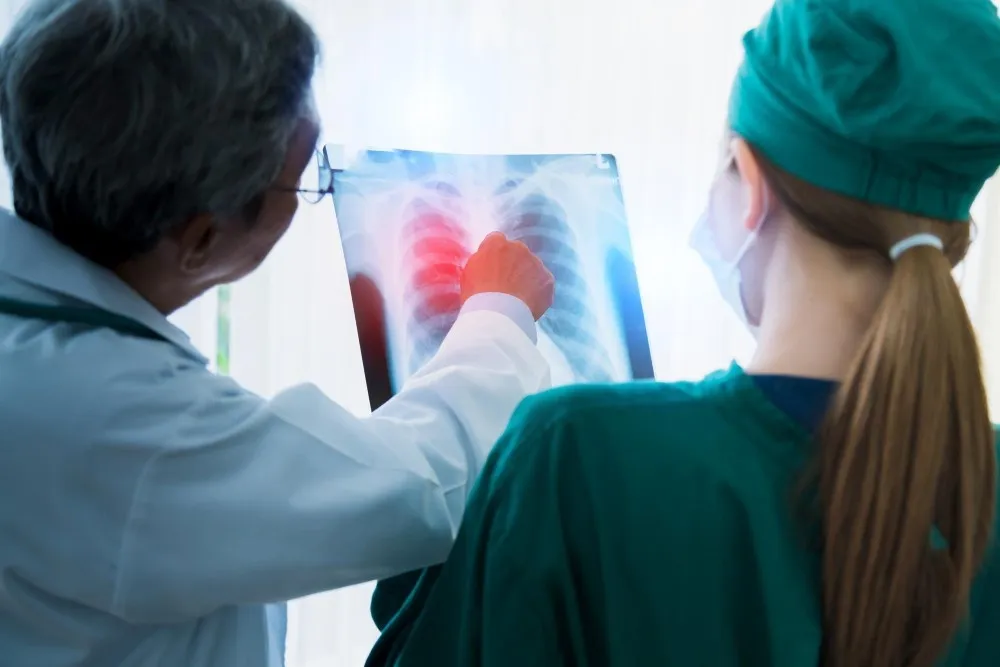Most of us might have listened, watched, or read about cigarette smoking and its harmful effects, but not have taken any action towards it. Somewhere in your lifetime, the effects of smoking may lead to a loss of life for you or your loved one due to the diseases caused by cigarette smoking. The deadliest of all, Lung Cancer, is on rising amongst males & females all over the world & India is no exception. In this blog, I will explain the quit smoking side effects and its benefits.
Sources:Image courtesy of [Theeradech Sanin] at FreeDigitalPhotos.net"Cancer," WHO.int, World Health Organisation, https://www.who.int/tobacco/research/cancer/en/"Smoking & tobacco use" - CDChttps://www.cdc.gov/tobacco/data_statistics/fact_sheets/health_effects/effects_cig_smoking/index.htm#quit"Harms of Smoking and Health Benefits of Quitting," Cancer.gov, National Cancer Institute, https://www.cancer.gov/cancertopics/factsheet/Tobacco/cessation"Lung Cancer Fact Sheet," Lung.org, American Lung Association, https://www.lung.org/lung-disease/lung-cancer/resources/facts-figures/lung-cancer-fact-sheet.html"Lung Cancer Risks for Non-smokers," Cancer.org, National Cancer Institute, https://www.cancer.org/cancer/news/why-lung-cancer-strikes-nonsmokers"Smoking and cancer," CancerResearch.org, https://www.cancerresearchuk.org/cancer-info/healthyliving/smoking-and-cancer/smoking-and-cancer
Cigarette Smoke - Breath Blocker, Heart Stopper & Cancer Trigger
Did you know?
- Tobacco Smoke contains more than 7000 substances, out of which more than 250 are toxic & more than 70 substances are known to cause cancer.
- Cigarette smoking claims the lives of 6 million people all over the world, out of which 1 million are Indians.
- In India, there are more than 70,000 diagnosed cases of lung cancer, with more than 90% of patients losing their lives.
- Tobacco users, who die prematurely, deprive their families of income, raise the cost of healthcare & hinder the economic development of the country.
Cigarette smoking increases the risk of developing
- Lung cancer in men by 25 times
- Lung cancer in women by 25.7 times
- Heart disease (& heart attack) by 2-4 times
- Stroke by 2-4 times
- COPD & Asthma deaths - Smokers are 12-13 times more likely to die from COPD & asthma than non-smokers.
If You Don't Smoke - Are you at a risk?
Second-hand smoking, also called Passive smoking/Involuntary smoking is a combination of side-stream smoke & smoke inhaled by the smoker. People are exposed to passive smoking at homes, workplaces & public places. There is no safe limit for smoking. Also, there is no safe level of exposure to second-hand smoke.Cigarette smoking increases the risk of developing:
- Lung cancer by 20-30%
- Heart disease by 20-30%
- Stroke by 20-30%
Second-hand smoke harms children
- SIDS - Sudden Infant Death Syndrome is the sudden unexpected, unexplained death of a child in the first year of life
- Triggering of Asthma attack in children
- More chances of developing lung diseases - Bronchitis, Pneumonia
- More chances of developing cough & wheeze
- More chances of developing ear infections
Does quitting help - even for a long-term smoker?
The good news is, yes! Becoming smoke-free is the first step towards reducing the risk of cancer. It may not be easy and might require external help, but the health benefits far outweigh the damaging effects:- Staying smoke-free for 10 years reduces the risk of cancer in the lung by half of that of a smoker, along with reducing the risk of others cancers as well.
- The risk of heart attack falls sharply after 1 year of quitting smoking
- Risk of stroke falls after 2-5 years of smoking
- Life expectancy increases no matter what age a person stops smoking; however, the benefit is more if one quits earlier.
What about a person who already has a positive lung cancer diagnosis - will it help to quit smoking now?
The answer is yes, quitting smoking during treatment helps the body to respond to therapy and recover quicker, while also reducing the risk of other infections and respiratory failure. Cancer patients who quit smoking also reduce their risk of recurrent cancer or second cancer at a later time.What happens to your body when you quit smoking?
As you quit smoking, there are a lot of changes that take place in your body. The timeline of changes is the following: [embed]https://www.youtube.com/watch?v=lY1HjXYiOow[/embed] There are numerous short and long-term benefits of quitting smoking. Let us categorize them into minutes, hours, and days. Effects after:- 20 - 30 minutes
- Blood pressure and pulse drop
- Hands and feet start to warm up
- 8 hours:
- Carbon monoxide in your blood drops while oxygen level increases
- 48 hours:
- Senses of smell and taste improve
- 72 hours:
- Bronchial tubes relax
- 2 weeks to 3 months:
- Circulation, lung function, and stamina improve
- 1 - 9 months:
- Coughing and sinus congestion decrease
- Lungs are better able to clear mucus, keep clean and reduce infection
- Overall energy improves
- 1 year:
- The risk of heart disease drops to half that of a smoker
- 5 years:
- The risk of stroke is the same as that of a non-smoker
- Risks of throat, mouth, esophagus, and bladder cancer are cut in half
- The risk of cervical cancer falls to that of a non-smoker
Always remember, it's better late than never!
Sources:Image courtesy of [Theeradech Sanin] at FreeDigitalPhotos.net"Cancer," WHO.int, World Health Organisation, https://www.who.int/tobacco/research/cancer/en/"Smoking & tobacco use" - CDChttps://www.cdc.gov/tobacco/data_statistics/fact_sheets/health_effects/effects_cig_smoking/index.htm#quit"Harms of Smoking and Health Benefits of Quitting," Cancer.gov, National Cancer Institute, https://www.cancer.gov/cancertopics/factsheet/Tobacco/cessation"Lung Cancer Fact Sheet," Lung.org, American Lung Association, https://www.lung.org/lung-disease/lung-cancer/resources/facts-figures/lung-cancer-fact-sheet.html"Lung Cancer Risks for Non-smokers," Cancer.org, National Cancer Institute, https://www.cancer.org/cancer/news/why-lung-cancer-strikes-nonsmokers"Smoking and cancer," CancerResearch.org, https://www.cancerresearchuk.org/cancer-info/healthyliving/smoking-and-cancer/smoking-and-cancer

Reviewed by







